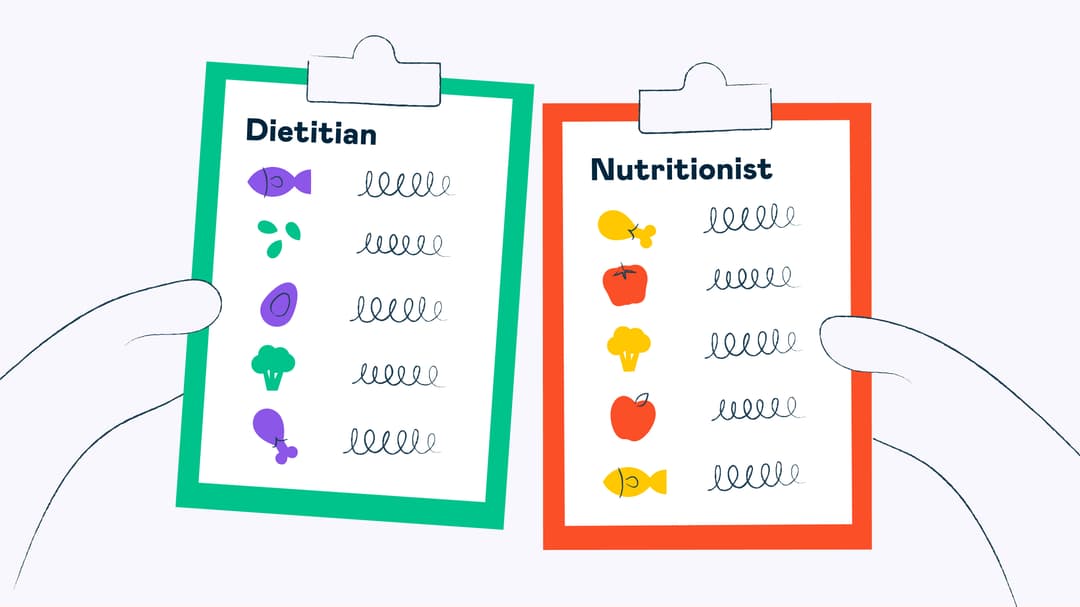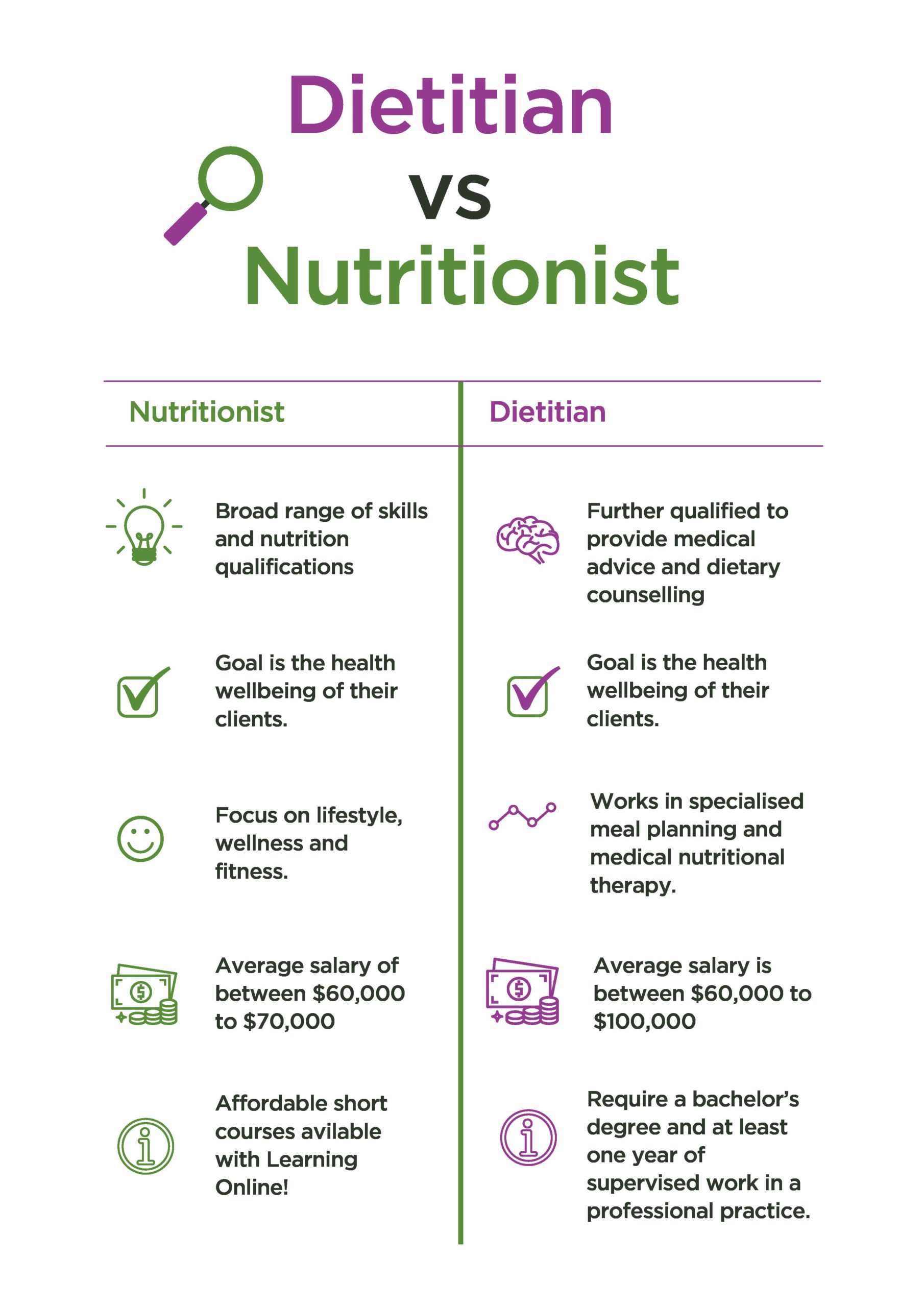All Categories
Featured
Table of Contents
-1
In the USA and many other nations, a dietitian is a board-certified food and nutrition specialist. They are very enlightened in the area of nourishment and dietetics the scientific research of food, nutrition, and their effect on human health. Via considerable training, dietitians acquire the proficiency to supply evidence-based medical nutrition therapy and dietary counseling customized to fulfill a person's demands.
-1To gain these qualifications dietitians-to-be must initially make a bachelor's level or equivalent credit histories from an approved program at a college or college. Generally, this requires an undergraduate science level, including courses in biology, microbiology, organic and inorganic chemistry, biochemistry, makeup, and physiology, as well as more specialized nutrition coursework.
Medical Nutritionist ( Kwinana)
-1This permits them to examine intense demands, prioritizing serious problems. Inpatient and outpatient dietitians additionally give nutrition education to individuals with specialized needs, such as those newly out of surgical procedure, in cancer cells therapy, or diagnosed with persistent illnesses like diabetes or kidney illness. In the outpatient setting, they offer extra extensive dietary therapy functioning towards a nutrition-oriented objective.
-1They can additionally promote for public laws with a concentrate on nourishment, food, and wellness problems. Research study dietitians generally work in research study medical facilities, companies, or colleges. They run within a study group headed by a main private investigator and perform nutrition-focused treatments. Once dietitians have earned their qualifications and are operating in the field, they can take place to specialize in a specific subcategory, such as pediatric medicines or sports dietetics.
-1Others might work as health and nourishment professionals in media or as public speakers (Vegan Dietitian). Dietitians are certified to handle nutrition therapy across a span of acute and persistent conditions.
Women’s Health Nutritionist
-1In several states, such as Alaska, Florida, Illinois, Maryland, Massachusetts, and Pennsylvania, RDs and CNSs are provided the same state certificate, typically called a Qualified Dietitian Nutritional Expert (LDN) license. In states that do not manage making use of this term, anybody with a passion in diet plan or nutrition might call themselves a nutritionist.
-1Due to the fact that uncredentialed nutritional experts typically do not have the know-how and training for clinical nourishment therapy and nutrition therapy, following their recommendations might be considered dangerous (). Prior to speaking with a nutritional expert, you might intend to inspect whether your state controls that might utilize this title. In the U.S. states that do not manage the term, no levels or credentials are required to be a nutritionist.

-1
In states that do mandate licensure, the CNS or RD credential might called for. Those with CNS qualifications are health and wellness specialists like nurses or doctors with innovative health levels who have actually chosen additional coursework, completed monitored method hours, and passed an examination overseen by the Board for Qualification of Nourishment Specialists.
-1While some of these methods might have robust clinical backing, others may not. Giving nourishment guidance without the appropriate understanding and training can be hazardous, particularly when counseling those with health and wellness conditions. If you are thinking about getting in touch with a nutritional expert, you may desire to ask if they are a CNS or have state licensure or qualification, or another credential.
Pregnancy Nutritionist ( Kwinana 6167)
-1A number of states especially control this term. Furthermore, nutritional experts might seek an advanced CNS certification.
-1It can be challenging to aid people make authentic, long-term changes in their lives. When you obtain an effective case, the reward can be profoundly gratifying. If it's a profession alternative that you wish to go after, there are two major career options readily available to you. Both dietitians and nutritionists give a range of nutrition-based solutions to clients.
-1They must have finished some level of education in their field. They are additionally required to have completed approximately a year of supervised work, working within a led program at a health care center, providing business, or area body. Dietitians have far better assumptions put on their capacities and level of professionalism and trust.
-1This implies that there is no body that supervises their qualifications and no specifically stringent standards that nutritionists demand to comply with in order to be able to practice. Dietitians, on the various other hand, are registered with country wide recognised bodies, such as the Dietitians Association of Australia. They should follow the National Proficiency Criteria for Dietitians.
Athletic Performance Nutrition

-1
Nevertheless, you can exercise as a nutritionist without the exact same degree of accreditation as a dietitian. Nutritionist courses can differ in size and top quality, with some as brief as 6 weeks and covering much less content than a dietetics training course. Relying on your education service provider, you can acquire a significant amount of knowledge via studying an easy nutrition program; nevertheless it is necessary to explore the training course material before commencing.
-1This can consist of participating in industry workshops or checking out sector magazines. Nutritional experts, on the various other hand, typically make their qualifications in order to supplement other credentials and provide far better recommendations to their customers. Nutritional experts can acquire work in a variety of areas, consisting of public health advice, recommendations for people, and collaborating with personal organisations.
-1Nutritionists can deal with showing off organisations, fitness centers, schools and recommend media electrical outlets on basic terms and right use of terms. Usually, individuals will certainly seek the solutions of a nutritional expert to assist them in getting right into shape. Dietitians can operate in many of the same functions as nutritionists. With a greater degree of certification, they can easily go into a role that a nutritionist would hold, supplied they are otherwise equal.
Best Nutritionist For Weight Loss (Mandogalup 6167)
-1Dietitians frequently work with more clinically sensitive clients. These can include those with diabetic issues, allergies, weight problems, cancer cells and gastrointestinal diseases. As a result of the high degree of understanding required to supply solutions to these individuals, just certified dietitians are permitted to give care. Several of the greater level roles with healthcare institutions can be very fulfilling, and pay fairly well.
-1In Australia there is a difference between a dietitian and other dietary wellness companies including nutritionists. All dietitians are nutritional experts, however nutritional experts without a dietetics credentials can not call themselves a dietitian.
-1Dietitians with the Accredited Practising Dietitian (APD) credential devote to ongoing training and education throughout their professions. As a career, nutritionists are not managed in Australia under NASRHP or licensed under a solitary regulative body.
Child Nutrition – Mandogalup 6167
-1If you have a chronic health condition and a care strategy from your General practitioner, you may be able to assert a Medicare rebate when you see an APD. The main objective of individuals functioning in the occupation of dietetics is symbolized in this declaration: The occupation of dietetics adds to the promotion of wellness and the prevention and treatment of disease by optimising the nutrition of populations, areas and individuals. Weight Loss Dietitian.
Latest Posts
Functional Nutritionist – Melville
What Do Bodybuilder Transformation Female Services Include?
Who Is The Best 6 Week Body Transformation Service?